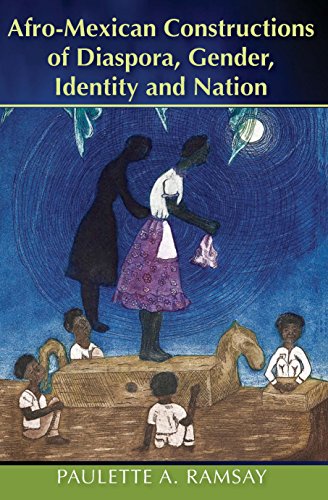Afro-Mexican Constructions of Diaspora, Gender, Identity and NationPosted in Anthropology, Books, Caribbean/Latin America, Literary/Artistic Criticism, Media Archive, Mexico, Monographs on 2016-08-28 02:32Z by Steven |
Afro-Mexican Constructions of Diaspora, Gender, Identity and Nation
University of The West Indies Press
April 2016
234 pages
Paperback ISBN: 978-976-640-579-3
Paulette A. Ramsay, Senior Lecturer in Spanish
University of the West Indies, Mona, Jamaica
Paulette Ramsay’s study analyses cultural and literary material produced by Afro-Mexicans on the Costa Chica de Guerrero y Oaxaca, Mexico, to undermine and overturn claims of mestizaje or Mexican homogeneity.
The interdisciplinary research draws on several theoretical constructs: cultural studies, linguistic anthropology, masculinity studies, gender studies, feminist criticisms, and broad postcolonial and postmodernist theories, especially as they relate to issues of belonging, diaspora, cultural identity, gender, marginalization, subjectivity and nationhood. The author points to the need to bring to an end all attempts at extending the discourse, whether for political or other reasons, that there are no identifiable Afro-descendants in Mexico. The undeniable existence of distinctively black Mexicans and their contributions to Mexican multiculturalism is patently recorded in these pages.
The analyses also aid the agenda of locating Afro-Mexican literary and cultural production within a broad Caribbean aesthetics, contributing to the expansion of the Caribbean as a broader cultural and historical space which includes Central and Latin America.
Contents
- List of Illustrations
- Foreword Father Glyn Jemmott Nelson
- Acknowledgements
- Introduction
- 1. Racial and Ethnic Diversity in Mexico through the Distorted Lens of Memín Pinguín
- 2. Constructions of Gender and Nation in Selected Afro-Mexican Folktales
- 3. Masculinity, Language and Power in Selected Afro-Mexican Corridos
- 4. Place, Racial and Cultural Identities in Selected Afro-Mexican Oral and Lyric Verses
- 5. Afro-Mexico in the Context of a Caribbean Literary and Cultural Aesthetics
- Conclusion
- Photographs
- Notes
- References
- Index

